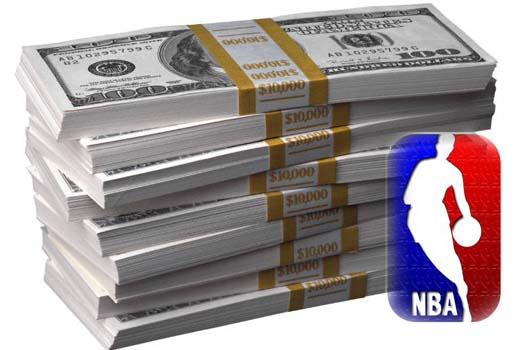
With the current recession, it is going to be difficult for a lot of Americans—even for those working with NBA basketball. At least as far as making money they were accustomed to making a few years ago.
Additionally, the biggest effect will be on team revenue. “If you think about it, it’s one big cycle. The recession affects the fans, who will spend less money on tickets and merchandise. So the league will force the players to accept less as the pie shrinks,” says ESPN.com Senior Writer, JA Adande.
Revenue from ticket sales and sponsorship will be down next season. Player payroll is based on a percentage of team revenue. This means the salary cap will go down, which means players that are not already under contract will have a difficult time getting the kind of deals they’ve gotten in the past.
Team owners are finding ways to cut costs in a shrinking economy.
“It already had an effect this season. Teams are anticipating lower revenue and were reluctant to take on expensive contracts at the trade deadline,” says Chris Carrino, Executive Director of Broadcasting for the New Jersey Nets.
Currently, the hoopla surrounding the summer of 2010 has been hyped as the year in which marketable a-list of superstars will become unrestricted free agents. This means that NBA squads can sign them to max long term deals without that price being matched by their current team or other teams. During that summer, it is believed that Cleveland Cavaliers forward LeBron James, will bolt and sign with either the New York Knicks or across the Hudson with the New Jersey Nets. That summer has been dubbed by some as the “Summer of LeBron.” It will be very interesting to see what teams decide to do as the economy crumbles. Will people spend money?
Among that elite list of free agents: Miami Heat’s Dwyane Wade, Toronto Raptors’ Chris Bosh, Phoenix Suns’ Amare Stoudemire, Boston Celtics’ Paul Pierce and Ray Allen, New Orleans Hornets’ Tyson Chandler, San Antonio Spurs’ Manu Ginobili, Milwaukee Bucks’ Richard Jefferson, Atlanta Hawks’ Joe Johnson, Houston Rockets’ Tracy McGrady and Yao Ming, Phoenix Suns’ Steve Nash, Dallas Mavericks’ Dirk Nowitzki and the Milwaukee Bucks’ Michael Redd.
“This will come into play in the next collective bargaining agreement, which will certainly feature shorter contract lengths and average and maximum salaries. It will become more difficult for teams to afford multiple stars, or to fit them into a smaller salary cap. So if the teams are worse, the fans won’t want to come to the arena to watch them, and it starts all over again,” added JA Adande.
A lot has happened since the current NBA collective bargain agreement, was signed during the lockout shortened 1998-99 NBA season. Players have made a lot of money. The current collective bargaining agreement ends the summer of 2011 and owners want to make strict changes. According to the Indianapolis Star-News, the Indiana Pacers have lost money nine of the past 10 years. The Sacramento Bee reported that the Sacramento Kings are expected to lose up to $25 million this season. The Sports Business Journal reported that the Orlando Magic are expecting potential losses of between $15 million and $20 million. Charlotte Bobcats owner Robert Johnson has claimed losses of $50 million since he paid $300 million for the expansion franchise in 2003.
Clearly the owners and NBA commissioner David Stern want to lower the salary cap and with good reason. The NBA salary cap went down only once in 2002. It went from $42.5 million to $42.7 because they overestimated it. That was with no economic trouble.
“I think the game will be fine, but just like every industry it’s going to take some hits” says ESPN the Magazine’s senior writer, Chris Broussard.
“The superstars are still going to get paid: Kobe, LeBron, Wade, and Dwight Howard are still going to get their money,” added Broussard. So who will take the biggest hit? “It’s always going to hurt the midlevel players, the midlevel salary will definitely drop” says Broussard.
What do players think about this? “Of course the current economic climate will affect the lengths of contracts and the amount of money people will make. Teams are tightening their spending since they are not making money the way they were before,” says Utah Jazz guard Brevin Knight.
One thing is clear, despite the economic woes fans will still need an outlet to get their minds off this economic crisis. They need something to cheer for.
”The game still is very popular. You have great young stars and rivalries in the Celtics and the Lakers. LeBron and Kobe have somewhat of a rivalry in regards to who is the best player,” added Broussard.
Something tells me, everything will be fine.
